Find Help
More Items From Ergsy search
-

Your anaesthetic choices for your planned hip or knee replacement surgery at the RUH.
Relevance: 100%
-

What type of anaesthesia is used during hip replacement surgery?
Relevance: 71%
-

What is minimally invasive hip replacement surgery?
Relevance: 70%
-

Knee replacement
Relevance: 69%
-

What are the risks associated with hip replacement surgery?
Relevance: 69%
-

How much does hip replacement surgery cost in the UK?
Relevance: 68%
-

How long does a hip replacement surgery take?
Relevance: 67%
-

How do I prepare for hip replacement surgery?
Relevance: 67%
-

Total Knee Replacement
Relevance: 66%
-

Hip replacement
Relevance: 65%
-

Total knee replacement
Relevance: 64%
-

Do I need a Hip Replacement?
Relevance: 62%
-

What is a hip replacement?
Relevance: 62%
-

Total hip replacement
Relevance: 62%
-

Total Hip Replacement
Relevance: 60%
-

Total hip replacement at Northumbria Healthcare
Relevance: 58%
-

A journey to hip surgery
Relevance: 58%
-

Can both hips be replaced at the same time?
Relevance: 55%
-

What is the recovery time for a hip replacement?
Relevance: 55%
-
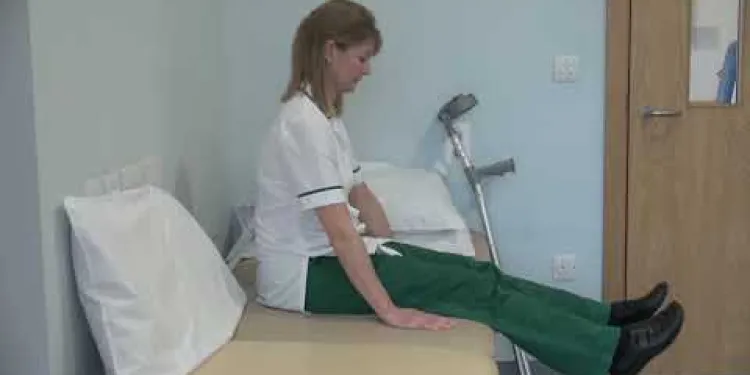
Hip replacement - getting into bed
Relevance: 54%
-

Will I need physical therapy after a hip replacement?
Relevance: 53%
-

How long does it take to recover from a hip replacement operation?
Relevance: 46%
-
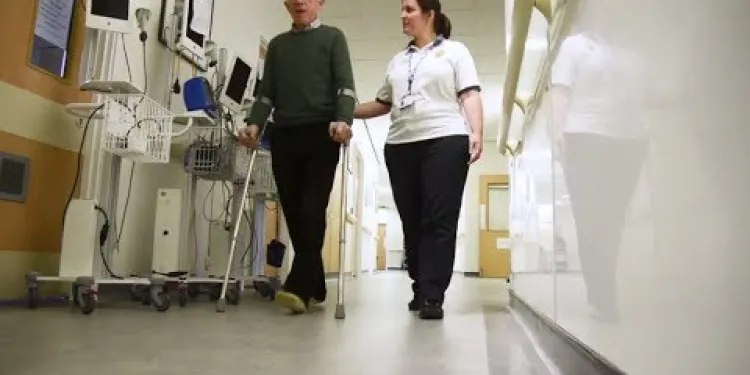
Having a hip replacement - Part Two: Recovery
Relevance: 45%
-
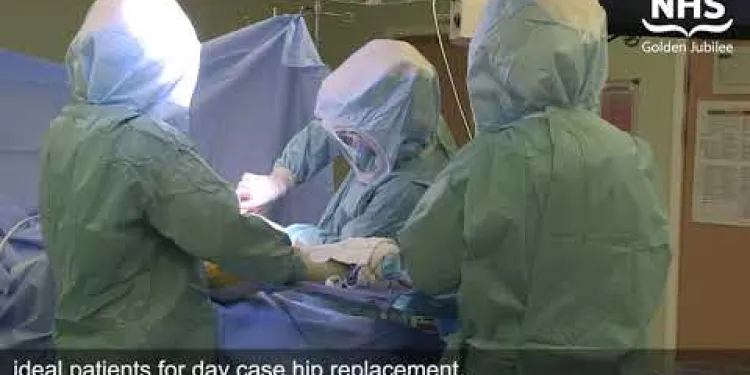
Same day discharge for NHS Golden Jubilee’s hip replacement patients
Relevance: 40%
-

What can I expect during the first few weeks after hip replacement surgery?
Relevance: 39%
-

How long do hip replacement implants last?
Relevance: 38%
-

Surgery under local anaesthetic in the Minor Ops Unit at North Bristol NHS Trust
Relevance: 38%
-

Are there different types of hip implants?
Relevance: 37%
-

Will I be able to return to normal activities after hip replacement?
Relevance: 35%
-
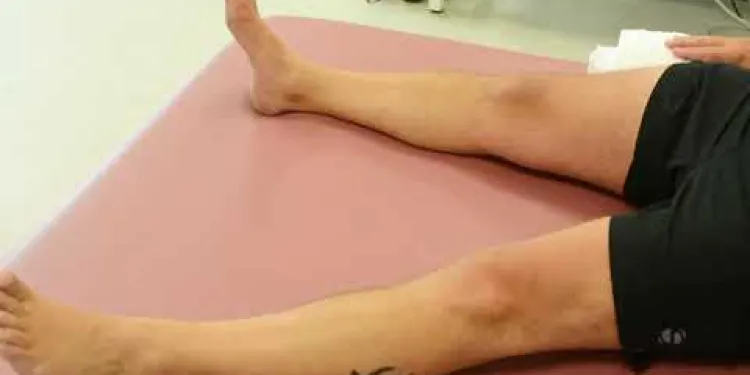
Joint School - Hip Exercises
Relevance: 35%
-

Osteoarthritis of the Hip
Relevance: 34%
-

NHS Faces Backlash Over Record-Breaking Surgery Waiting Times
Relevance: 33%
-

On the day of your cataract surgery
Relevance: 33%
-

Joint School - Knee Exercises
Relevance: 32%
-

Top 5 questions about having a general anaesthetic
Relevance: 31%
-

Cataract surgery can resolve life long short-sightedness?!
Relevance: 31%
-
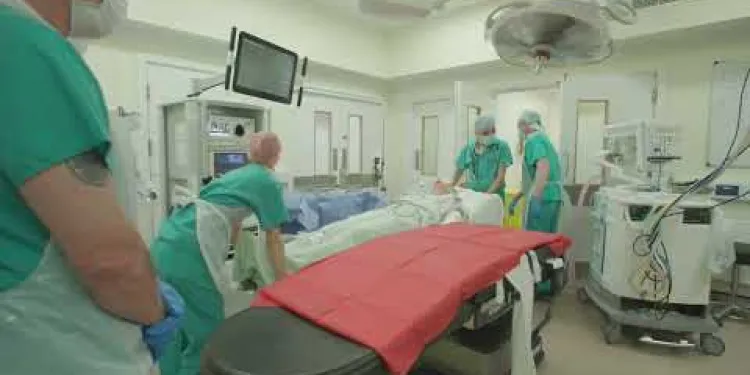
Prostate Surgery
Relevance: 31%
-
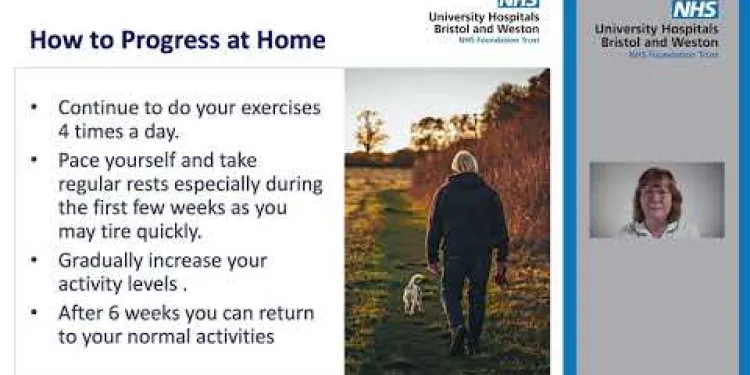
Enhanced Recovery - Hip
Relevance: 30%
-

Is surgery always required to treat flesh-eating disease?
Relevance: 29%
-

Osteoarthritis of the Hip
Relevance: 29%
Your Anaesthetic Choices for Your Planned Hip or Knee Replacement Surgery at the RUH
Introduction
Undergoing hip or knee replacement surgery is a significant medical procedure, and understanding your anaesthetic options is crucial for a smooth experience and recovery. At the Royal United Hospitals (RUH) Bath, we prioritize patient comfort and safety, offering several anaesthetic choices tailored to your needs. This guide provides an overview of the available options for patients in the United Kingdom.
General Anaesthesia
General anaesthesia involves rendering the patient completely unconscious during the surgery. This option is suited for those who prefer not to be aware of the procedure. The anaesthesia team will administer a combination of intravenous medications and gases to ensure you sleep through the surgery without feeling pain. Vital signs are closely monitored to maintain your safety throughout the procedure.
Regional Anaesthesia
Regional anaesthesia numbs a specific part of the body while keeping you awake but relaxed during the surgery. This method includes spinal blocks, epidural blocks, and peripheral nerve blocks, commonly used for hip and knee replacements. These techniques are effective in reducing post-operative pain and often have fewer side effects compared to general anaesthesia. Patients may choose this option if they prefer to avoid the grogginess associated with general anaesthetics.
Sedation
For those who opt for regional anaesthesia but prefer to be less aware of the surgery, sedation can be administered. This involves giving medications that make you drowsy and relaxed, though you will not be fully unconscious. Sedation can provide a balance by keeping surgery stress-free without the depth of general anaesthesia.
Discussion with Your Anaesthetist
Every patient at the RUH will have a pre-operative assessment where you can discuss your anaesthetic options in detail with an anaesthetist. This is an excellent opportunity to express any concerns, medical history, or preferences you may have. They will guide you in making an informed decision, considering factors such as your overall health, pain management needs, and personal comfort levels.
Conclusion
Choosing the right anaesthetic for your hip or knee replacement surgery at the RUH is essential for your comfort and recovery. Whether you prefer to be completely unconscious or awake but pain-free, the anaesthesia team is dedicated to providing the best care tailored to your needs. Understanding your options can help ease anxiety and prepare you for a successful surgery and a smoother post-operative experience.
Your Choices for Anaesthetic During Hip or Knee Surgery at RUH
Introduction
If you are having hip or knee surgery, it's important to know about the anaesthetic choices you have. Anaesthetic helps make the surgery comfortable and safe. At the Royal United Hospitals (RUH) Bath, we want you to feel relaxed and cared for. This guide will help you understand the options available for you in the UK.
General Anaesthesia
General anaesthesia makes you fully asleep during the surgery. This choice is good if you don't want to know anything about the surgery while it happens. Medicines are given to you so you don't feel any pain. The doctors watch your heart and breathing closely to keep you safe.
Regional Anaesthesia
Regional anaesthesia makes just one part of your body numb. You stay awake but feel no pain where the operation happens. Types of regional anaesthesia include spinal blocks and epidurals. This choice can help you have less pain after surgery and might have fewer side effects than general anaesthesia. Some people pick this so they do not feel sleepy afterwards.
Sedation
If you choose regional anaesthesia but want to feel more relaxed, sedation can help. Sedation makes you feel sleepy, but you are not fully asleep. It helps you feel calm during the surgery without needing general anaesthesia.
Talk with Your Anaesthetist
Before your surgery at RUH, you can talk to an anaesthetist. This is the right time to ask questions and share your worries. The anaesthetist will help you choose the best anaesthetic based on your health and what makes you comfortable.
Conclusion
Picking the right anaesthetic for your hip or knee surgery at RUH is important. Whether you want to be fully asleep or just pain-free, our team is here to help you. Knowing your choices can help you feel more at ease and ready for surgery.
Frequently Asked Questions
What type of anaesthesia will I receive for my hip or knee replacement surgery?
You will likely receive either a general anaesthetic (where you are fully asleep) or a regional anaesthetic (such as a spinal or epidural) where you are awake but numb from the waist down.
Which anaesthetic is safer for hip or knee replacement surgery?
Both general and regional anaesthetics are considered safe. However, the choice depends on various factors including your health, the type of surgery, and your personal preferences.
Will I have a choice in the type of anaesthesia I receive?
Yes, your anaesthetist will discuss the options with you and help you make an informed decision based on your health and the specifics of your surgery.
Can I eat or drink before my surgery?
You will be given specific instructions, but generally you should not eat anything for 6 hours before surgery. You may be allowed to drink clear fluids up to 2 hours before the procedure.
What is the difference between a spinal anaesthetic and an epidural?
A spinal anaesthetic involves injecting medication directly into the cerebrospinal fluid, providing numbness and pain relief. An epidural involves placing a catheter in the epidural space outside the spinal fluid, allowing continuous pain relief.
Will I be awake during the surgery if I choose regional anaesthesia?
Yes, you will be awake but you will not feel pain in the surgical area. You may also be given sedatives to help you relax.
How long does the anaesthetic last?
General anaesthesia wears off shortly after the surgery is completed. Regional anaesthesia can last several hours, providing pain relief during and after the surgery.
What are the side effects and risks associated with general anaesthesia?
Common side effects include nausea, sore throat, and dizziness. Serious risks are rare but can include allergic reactions, breathing problems, and complications related to pre-existing conditions.
What are the side effects and risks associated with regional anaesthesia?
Common side effects include headache and back soreness. Serious risks are rare but can include bleeding, infection, and nerve damage.
Will I experience pain during or after the surgery?
You should not feel pain during the surgery. Post-operative pain will be managed with medications, and regional anaesthesia can provide extended pain relief.
How soon can I go home after surgery?
Most patients can go home within a few days of their hip or knee replacement surgery, depending on their recovery and mobility.
What should I do if I have concerns or questions about my anaesthesia?
You should discuss any concerns or questions with your anaesthetist during your pre-operative assessment.
Can I have anaesthesia if I have a cold or the flu?
It depends on the severity of your symptoms. Mild symptoms may not be an issue, but it’s essential to inform your surgical team if you are unwell.
Will I need to stop taking my medications before surgery?
You will be given specific instructions about medications. Some may need to be stopped, while others should be continued. Always follow the guidance provided by your healthcare team.
How can I prepare for my surgery and anaesthesia?
Follow all pre-operative instructions, stay hydrated, avoid smoking and alcohol, and ensure you have a support system in place for your recovery period.
What kind of medicine will I get to make me sleep during my hip or knee surgery?
You will get special medicine so you do not feel anything during your hip or knee surgery. This medicine is called anaesthesia.
The doctor will talk to you about the best type of anaesthesia for your surgery.
Here are some things you can do:
- Ask the doctor if you will be asleep or just feel numb.
- Tell the doctor if you have allergies.
- Ask someone you trust to come to the appointment with you.
You will either get a special medicine that makes you fully asleep, or a different kind that keeps you awake but makes you feel numb from the waist down. This medicine helps so you don't feel any pain during the procedure.
What type of sleep medicine is safer for hip or knee surgery?
Doctors use sleep medicine to help you not feel pain during surgery. There are different types of sleep medicine.
If you need hip or knee surgery, you might want to know which sleep medicine is safer for you. Ask your doctor to explain your options.
You can ask someone you trust to go with you to doctor visits. They can help you understand and remember what the doctor says.
Both general and regional anaesthetics are safe. But, choosing which one to use depends on a few things. These things are your health, the kind of surgery you are having, and what you like best.
Can I choose the kind of sleep medicine I get for surgery?
Yes, you can talk to your doctor about it. They will help you pick the best one. Tell the doctor if you are scared or worried. Your doctor is there to help you feel safe and comfy.
Your anaesthetist will talk with you about your choices. They will help you decide what is best based on your health and the type of surgery you are having.
Can I Eat or Drink Before My Surgery?
You should not eat or drink before your surgery. This means no food, water, juice, or snacks. It is important for staying safe during the surgery.
Here are some tips to remember:
- Stop eating or drinking the night before your surgery.
- Write a note or set a reminder to help you remember.
- Ask a friend or family member to remind you.
Following these steps will help the doctors take good care of you.
Before your surgery, you will get special rules to follow. But here is a simple rule: Do not eat any food for 6 hours before your surgery. But, you can drink clear drinks, like water, until 2 hours before the surgery.
To help remember this, you can:
- Set a timer or reminder on your phone.
- Ask someone to help remind you.
How are a spinal anaesthetic and an epidural different?
A spinal anaesthetic is a special medicine that helps you not feel pain. It is put into your back with a needle. It works fast and stops pain in one part of your body, like your belly or legs.
An epidural is also a medicine that takes away pain. The doctor puts it into your back, but it usually has a small tube so you can get more medicine if you need it. It works a bit slower and is often used when having a baby.
You can use pictures to help understand this. Ask questions if something is not clear. It's okay to talk to your doctor and ask what is best for you.
A spinal anaesthetic is a treatment that helps stop pain. A doctor puts medicine into the fluid around the spinal cord. This helps you feel numb and stops pain.
An epidural is a bit different. A doctor puts a tiny tube, called a catheter, near your spine. This tube helps give pain relief over a longer time.
If you find reading hard, you can ask someone to read it to you. You can also use tools like text-to-speech apps that read the text out loud.
Will I be awake during the surgery if I choose regional anaesthesia?
If you get regional anaesthesia, you will not feel pain in a big part of your body. You will stay awake during the surgery.
If you feel a bit worried, you can talk to your doctor about ways to help you relax.
Some people use headphones to listen to music or ask for a gentle medicine to help them stay calm.
Yes, you will be awake, but you won't feel any pain where the surgery is happening. You might also get medicine to help you stay calm.
How long does the sleepy medicine last?
When you go to the doctor or dentist, sometimes they give you a special sleepy medicine so you don't feel anything. This is called anaesthetic.
The sleepy medicine can make you feel sleepy or like you can't feel part of your body.
Usually, this feeling goes away after a short time. This can be 1 to 4 hours. But, everyone is different, and it might last a bit longer for some people.
If you are worried, tell your doctor or dentist. They can help you and explain more.
It can help to have a grown-up with you. They can help you remember what the doctor or dentist said.
After your operation, you will wake up soon because the sleepy medicine (general anaesthesia) stops working fast. If you have another type of medicine (regional anaesthesia), it can keep you from hurting for a few more hours.
What can happen when you have general anaesthesia?
When you have general anaesthesia, you are put into a deep sleep for surgery. It helps you not feel pain. Most people wake up fine, but sometimes there are side effects or risks.
Common side effects
- Feeling tired or dizzy
- Headache
- Feeling sick or throwing up
- Sore throat
Less common risks
- Allergic reaction
- Breathing problems
- Heart problems
If you feel worried, talk to your doctor or nurse. It can help to have someone explain things clearly to you. You can also use pictures or videos to understand better. Ask questions if you do not understand something.
Sometimes, this medicine can make you feel sick, give you a sore throat, or make you feel dizzy. These are common effects and not very serious.
Bad effects are rare, but they can happen. You might have an allergy, have trouble breathing, or it might cause problems if you already have other health issues.
If you're worried, talk to a doctor, nurse, or someone you trust. They can help you understand and decide what to do next. Keeping a diary or checklist of how you feel can also help you and your doctor understand your reactions better.
What are the side effects and risks of regional anaesthesia?
When a doctor gives you medicine to make part of your body numb, it is called regional anaesthesia. Sometimes, this can cause side effects, which means things that happen to your body because of the medicine.
Here are some side effects and risks of regional anaesthesia:
- You might feel dizzy or sick.
- There could be a headache afterwards.
- The numbness could last longer than expected.
- The area might feel sore or swollen.
- In rare cases, there could be more serious problems.
If you have questions, you can ask your doctor or nurse. They can help explain things. It's also good to have someone with you to listen and help remember the information.
Sometimes, the medicine can make your head or back hurt. These are called common side effects. There are some serious problems that don't happen often. These can be bleeding, getting an infection, or hurting your nerves.
If you need help understanding this, you can ask someone to read it with you. Using pictures or drawings might also help you understand better.
Will it hurt during or after the surgery?
You will not feel pain during the surgery. After the surgery, medicine will help with any pain. Special medicine can also help keep pain away for a longer time.
When can I go home after my operation?
After your operation, a doctor will tell you when you can go home. Sometimes you can go home the same day. Other times, you might need to stay longer. It depends on how you feel and the kind of operation you had.
If you have questions, you can ask your doctor or nurse. They are there to help you. You can also use pictures or videos to understand better.
Most people can go home a few days after hip or knee surgery. It depends on how well they are getting better and how easy it is for them to move around.
If you find it hard to read, try using tools that read the text out loud. You can also use a ruler or finger to follow the words. Reading with a friend or family member can also help.
What should I do if I have worries or questions about my sleep medicine?
If you are worried or have questions about the medicine that makes you sleep during an operation, talk to your doctor or nurse. You can ask them to explain it in a simple way.
Here are some things you can do:
- Write down your questions before you talk to the doctor.
- Bring a family member or friend to help you remember what the doctor says.
- Ask the doctor to use easy words if you don't understand something.
- Use pictures or drawings if they help you understand better.
It's important to feel safe and understand what will happen during the operation.
Talk to your anaesthetist if you have any worries or questions before your operation. You can make a list of things you want to ask. It helps to write down any concerns you have. You can also bring a friend or family member to support you. Don't be afraid to speak up and ask anything you want to know. It's important to feel comfortable and understand what will happen during your operation.
Can I have medicine to make me sleep if I have a cold or the flu?
If you have a cold or the flu, talk to your doctor before you have medicine to make you sleep during an operation.
Here are some things to think about:
- Tell the doctor if you have a fever, cough, or blocked nose.
- The doctor will decide if it is safe for you to have the medicine.
- Sometimes it is better to wait until you feel better.
You can ask a family member or friend to help you talk to the doctor.
It depends how bad your symptoms are. If you only feel a little bit sick, it might not be a problem. But you should tell your surgery team if you do not feel well.
Do I need to stop taking my medicine before surgery?
If you are going to have surgery, you might need to stop taking some medicines. Ask your doctor or nurse about your medicines. They will tell you if you should stop taking them or keep taking them before your surgery.
Here are some tips to help you:
- Make a list of all the medicines you take. This includes pills, vitamins, and herbs.
- Take this list to your doctor or nurse.
- Ask if you need to stop taking any of these before surgery.
- If you stop taking a medicine, make sure to know when you can start taking it again.
Your doctor will tell you what to do with your medicine. Some medicine you might stop taking, and some you might keep taking. Always do what your doctor says.
How can I get ready for my surgery and sleep medicine?
Surgery means an operation to fix something in your body. Sleep medicine is what helps you sleep during the operation so you don't feel anything.
Here are some easy steps to help you get ready:
- Talk to your doctor: Ask questions if you are worried or don’t understand.
- Follow instructions: Your doctor will give you important rules, like not eating or drinking before the surgery. It's important to follow these rules.
- Bring a comfort item: You can bring a favorite toy or blanket to help you feel better.
- Relax and breathe: Take deep breaths and try to stay calm. You can listen to music or read a book.
Tools and tips that can help:
- Calendar: Mark the date of your surgery on a calendar so you remember.
- Reminder notes: Leave notes for yourself so you don't forget important rules.
- Trusted adult: Have a parent or adult you trust with you to help and support you.
Listen to what your doctor says before the operation. Drink lots of water. Do not smoke or drink alcohol. Make sure you have a friend or family to help you after the operation.
Useful Links
This website offers general information and is not a substitute for professional advice.
Always seek guidance from qualified professionals.
If you have any medical concerns or need urgent help, contact a healthcare professional or emergency services immediately.
Some of this content was generated with AI assistance. We’ve done our best to keep it accurate, helpful, and human-friendly.
- Ergsy carfully checks the information in the videos we provide here.
- Videos shown by Youtube after a video has completed, have NOT been reviewed by ERGSY.
- To view, click the arrow in centre of video.
- Most of the videos you find here will have subtitles and/or closed captions available.
- You may need to turn these on, and choose your preferred language.
- Go to the video you'd like to watch.
- If closed captions (CC) are available, settings will be visible on the bottom right of the video player.
- To turn on Captions, click settings .
- To turn off Captions, click settings again.
More Items From Ergsy search
-

Your anaesthetic choices for your planned hip or knee replacement surgery at the RUH.
Relevance: 100%
-

What type of anaesthesia is used during hip replacement surgery?
Relevance: 71%
-

What is minimally invasive hip replacement surgery?
Relevance: 70%
-

Knee replacement
Relevance: 69%
-

What are the risks associated with hip replacement surgery?
Relevance: 69%
-

How much does hip replacement surgery cost in the UK?
Relevance: 68%
-

How long does a hip replacement surgery take?
Relevance: 67%
-

How do I prepare for hip replacement surgery?
Relevance: 67%
-

Total Knee Replacement
Relevance: 66%
-

Hip replacement
Relevance: 65%
-

Total knee replacement
Relevance: 64%
-

Do I need a Hip Replacement?
Relevance: 62%
-

What is a hip replacement?
Relevance: 62%
-

Total hip replacement
Relevance: 62%
-

Total Hip Replacement
Relevance: 60%
-

Total hip replacement at Northumbria Healthcare
Relevance: 58%
-

A journey to hip surgery
Relevance: 58%
-

Can both hips be replaced at the same time?
Relevance: 55%
-

What is the recovery time for a hip replacement?
Relevance: 55%
-

Hip replacement - getting into bed
Relevance: 54%
-

Will I need physical therapy after a hip replacement?
Relevance: 53%
-

How long does it take to recover from a hip replacement operation?
Relevance: 46%
-

Having a hip replacement - Part Two: Recovery
Relevance: 45%
-

Same day discharge for NHS Golden Jubilee’s hip replacement patients
Relevance: 40%
-

What can I expect during the first few weeks after hip replacement surgery?
Relevance: 39%
-

How long do hip replacement implants last?
Relevance: 38%
-

Surgery under local anaesthetic in the Minor Ops Unit at North Bristol NHS Trust
Relevance: 38%
-

Are there different types of hip implants?
Relevance: 37%
-

Will I be able to return to normal activities after hip replacement?
Relevance: 35%
-

Joint School - Hip Exercises
Relevance: 35%
-

Osteoarthritis of the Hip
Relevance: 34%
-

NHS Faces Backlash Over Record-Breaking Surgery Waiting Times
Relevance: 33%
-

On the day of your cataract surgery
Relevance: 33%
-

Joint School - Knee Exercises
Relevance: 32%
-

Top 5 questions about having a general anaesthetic
Relevance: 31%
-

Cataract surgery can resolve life long short-sightedness?!
Relevance: 31%
-

Prostate Surgery
Relevance: 31%
-

Enhanced Recovery - Hip
Relevance: 30%
-

Is surgery always required to treat flesh-eating disease?
Relevance: 29%
-

Osteoarthritis of the Hip
Relevance: 29%


